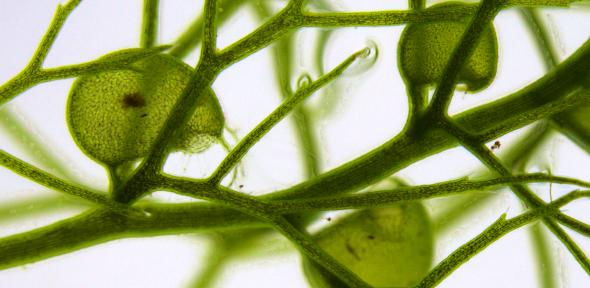
A day just for plants
The sixth international “Fascination of Plants Day” is on Wednesday 18 May 2022. It is an initiative of plant scientists across the world under the umbrella of the European Plant Science Organisation (EPSO).
Why do we need a Fascination of Plants Day?
The goal of this activity is to get as many people as possible around the world fascinated by plants and enthused about the importance of plant science for agriculture and sustainable production of nutritious food, as well as for horticulture, forestry and the production of plant-based non-food products such as paper, timber, chemicals, energy and pharmaceuticals.
Check the Fascination of Plants Day website to find out more and discover events.
Why is the Sainsbury Lab researching plants?
The Sainsbury Laboratory houses around 13 research groups focussing on the fundamental understanding of how plants grow and develop, which is paramount for the long-term security of a sustainable supply of food and other plant products, such as fuel, fibres and building materials.
We have scientists in biological, physical, and mathematical sciences integrating a range of experimental research with computational modelling of plants. This interdisciplinary approach is essential for understanding the complex dynamic and self-organising properties of plants.
Meet two of our our scientists
Chris Whitewoods
Chris studies how plants pattern themselves in three dimensions (3D). investigate how plants coordinate their overall leaf shape with intricate internal patterning to produce leaves that are exquisitely adapted to their function, be that light capture for photosynthesis in flat leaves or prey capture for nutrient uptake in carnivorous plants. In the below video Chris talks about how he uses Utricularia gibba, a carnivorous bladderwort, to investigate leaf shape using developmental analysis, genetic manipulation and computational modelling.
Sarah Robinson
Sarah uses a combination of novel biophysical tools, genetic manipulation and mathematical modelling to investigate how plant development (cell division and cell expansion) is controlled.In plants the relationship between cell division and expansion is not clear. This is due to the rigid cell wall that surrounds the cells. Cell expansion requires the wall to extend and, therefore, depends upon how extensible it is and the forces that are acting on it, such as those due to turgor pressure. Cell expansion increases the size of the cell with little increase in biomass. This can be critical to optimise plants for biofuels, for which we want to maximise biomass for a given size. In the below video Sarah discusses her groups research that is investigating how plants grow.







